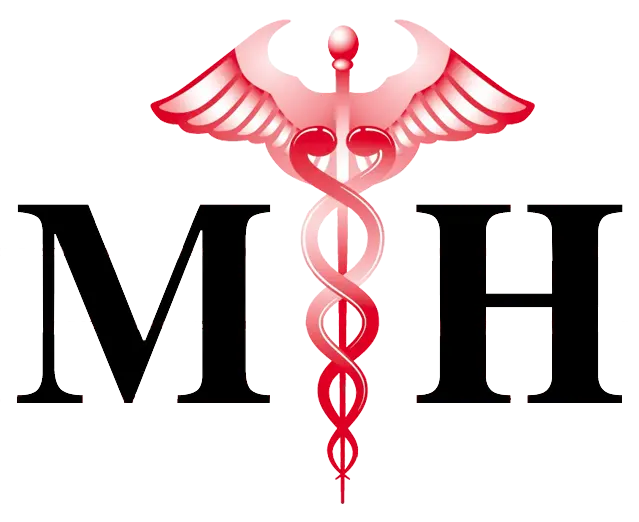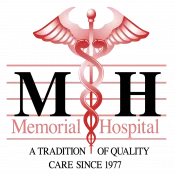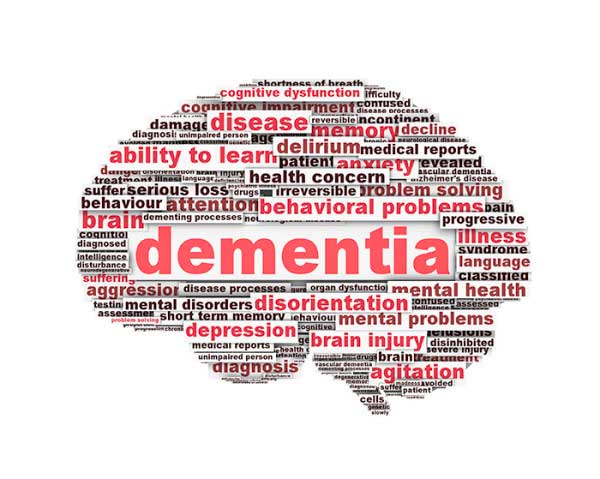Over 5 million people in the U.S. suffer from dementia. Among older individuals, the rate of incidence of dementia is as high as 33%. Because aging itself can have multiple symptoms, it can be difficult to discern if cognitive symptoms are due to normal aging or something more serious. This post takes a look at signs of dementia and how to care for someone with this diagnosis.
Signs of Dementia
Forgetting names or misplacing items can be normal for an older adult. There are, however, cognitive symptoms that may indicate something more serious is happening. Being assessed for dementia should be considered if a person experiences:
- Becoming lost in a familiar place
- Calling a familiar object by a different name
- Forgetting the name of a close friend or relative
- Inability to recall old memories
- Struggling with daily living tasks
- Personality changes
- Struggling with decision-making
Types of Dementia
Dementia is a broad term that encompasses several conditions. Forms of dementia that are irreversible include:
- Alzheimer’s – Caused from clumps and tangles of two proteins inside the brain, Alzheimer’s is the most common form of dementia. Alzheimer’s decreases memory and cognitive ability over time, causing sufferers of the disease to be unable to care for themselves independently.
- Vascular dementia – Damage to vessels that supply blood to the brain causes this form of dementia. Strokes can accompany this condition. In vascular dementia, memory loss isn’t the most noticeable symptom – slowed thinking, inability to focus or problem solve, and poor organization are more prevalent.
- Lewy body dementia– Many people became aware of this condition after Robin Williams’ death. Williams was misdiagnosed with Parkinson’s, but later it was found he actually suffered from Lewy body dementia. This form of dementia may cause hallucinations and impact ability to focus. Decreased coordination and slow or rigid movements are also expected with Lewy body dementia.
- Frontotemporal dementia – In this form of dementia, nerve cells break down in the part of the brain that oversees personality, language, behavior, thinking, judgment, and movement. The symptoms of frontotemporal dementia will present as noticeable changes to any of these areas.
- Mixed dementia – Most common in people over 80, when more than one type of dementia is present at the same time, it is referred to as mixed dementia.
Conditions Related to Dementia
Conditions related to dementia include:
- Parkinson’s disease – Parkinson’s sufferers experience tremors, limb rigidity, and can also suffer from dementia symptoms. Activists have helped bring this disease to light, and research into treatments is advancing.
- Traumatic brain injury – TBIs are usually the result of a head trauma. Symptoms of TBI do not always appear immediately, but can include memory issues, aggression, depression, and impaired speech.
- Huntington’s disease – Unlike most forms of dementia, which aren’t observed until later in life, cognitive impairment due to Huntington’s disease is often observable by the time a person is in their 40s. Huntington’s is a genetic mutation that deteriorates nerve cells in the brain and spinal cord, causing cognitive decline.
Conditions That May Present as Dementia
Many conditions include cognitive related symptoms and can be confused with dementia. Fortunately, the cognitive concerns with these conditions are reversible. These conditions include:
- Hypoglycemia
- Thyroid issues
- Infections
- Immune disorders
- Electrolyte imbalances
- Nutritional deficiencies
- Subdural hematomas
- Brain tumors
- Reactions to medications
How is Dementia Diagnosed?
Doctors will first try to rule out issues like those listed above. They do so via a physical exam, medical history, brain scan, lab work, genetic testing, neurological testing, psychiatric evaluation, or other modalities.
How is Dementia Treated?
Treatments for dementia vary, depending upon the cause.
If you think someone you love may have dementia, consult a physician. The most valuable thing you can do for someone with dementia is love and include them. You can help support your loved one by:
- Keeping their days consistent (especially regarding meals and bedtime).
- Plan a time for your loved one to do activities they love each day, at the same time each day.
- Allow them independence as much as is safely possible.
- Buy them clothing that is easy to put on and take off. Elastic waistbands are helpful, as are large zipper pulls or other large fastenings.
- Don’t argue. Maintain respect and gentleness.










